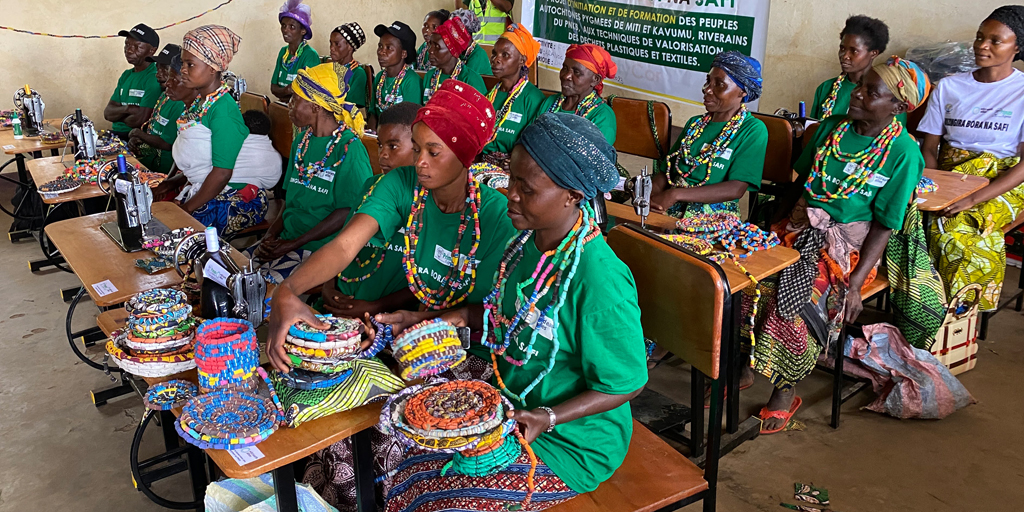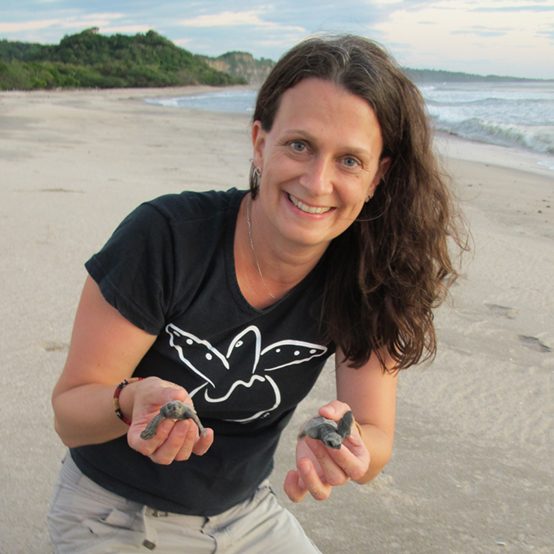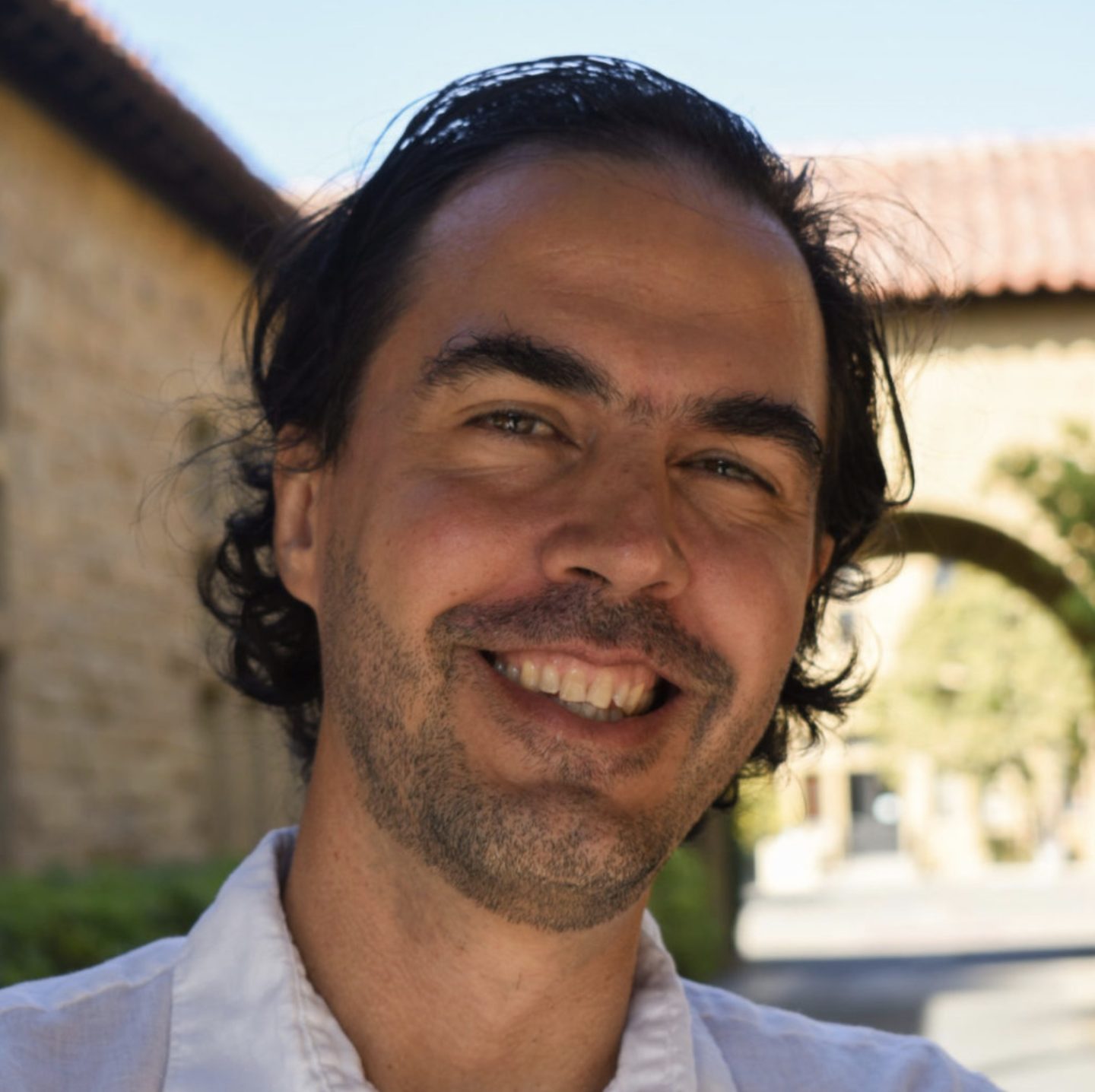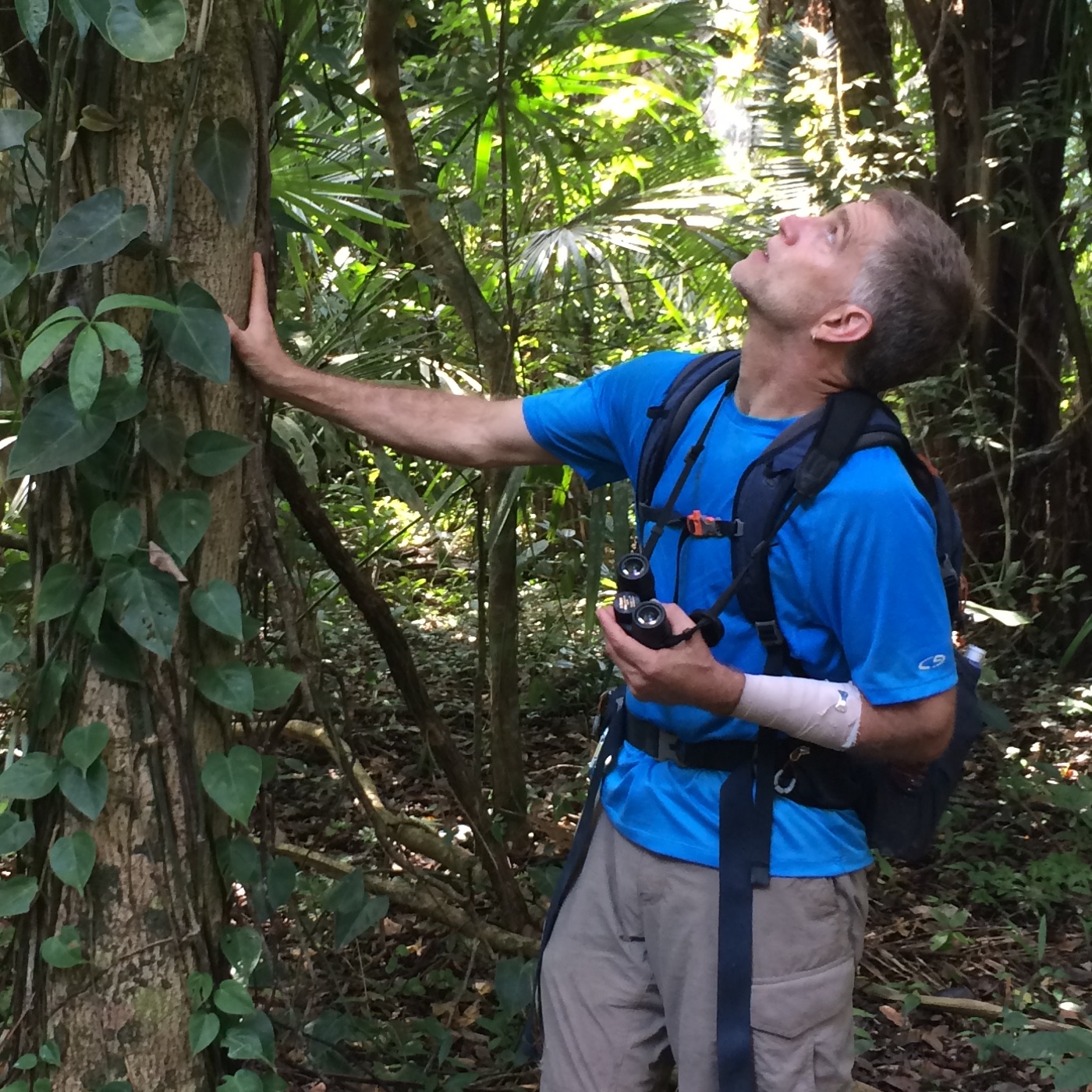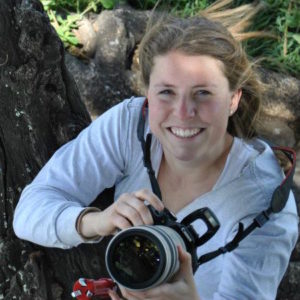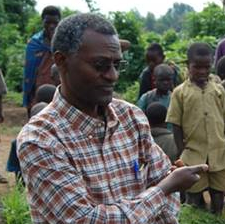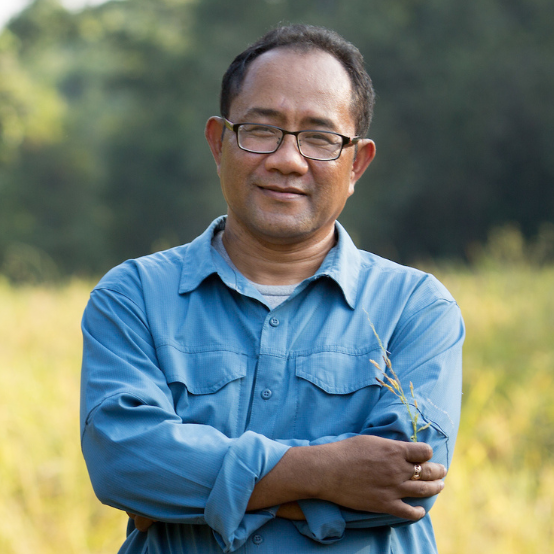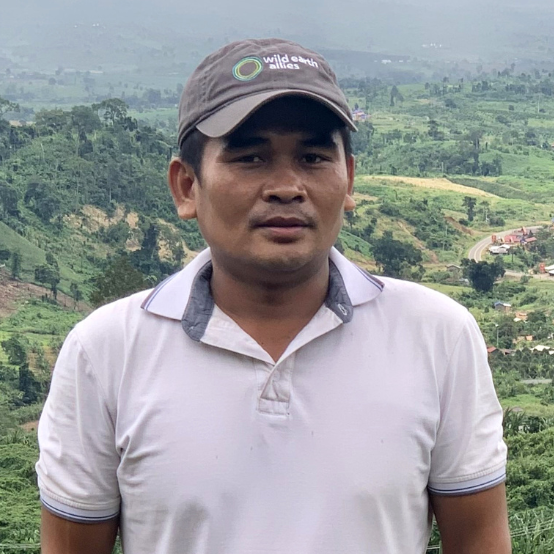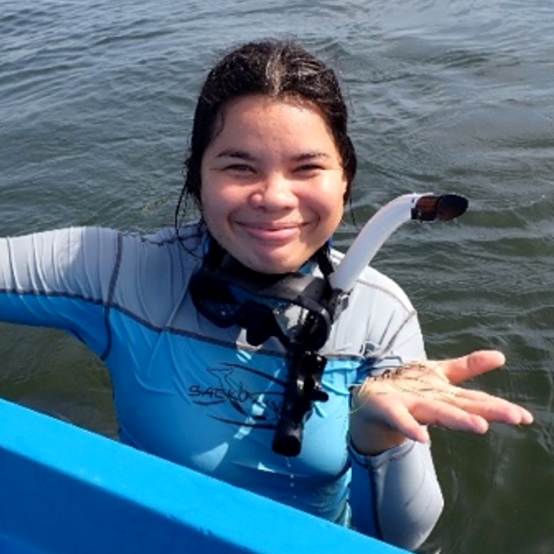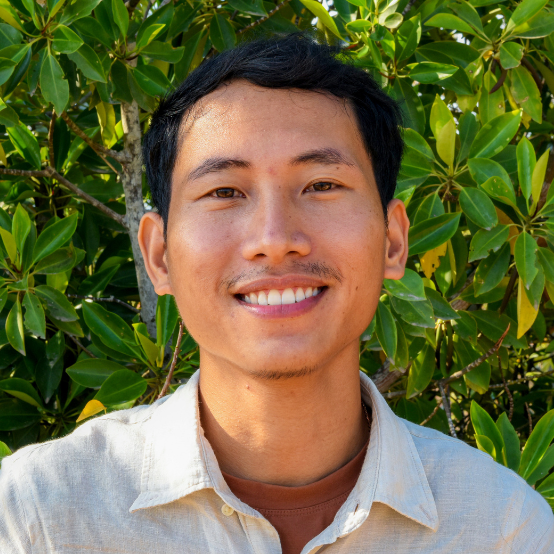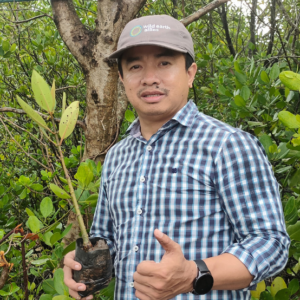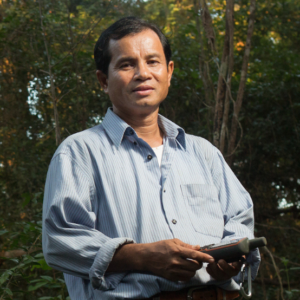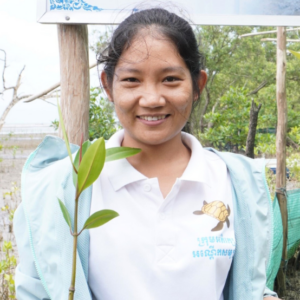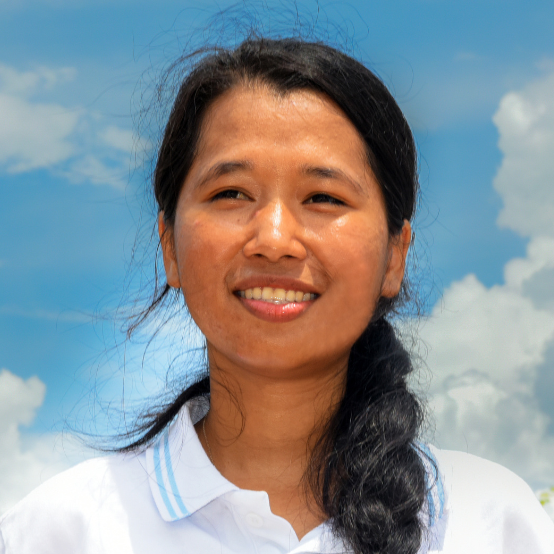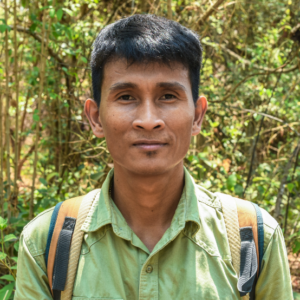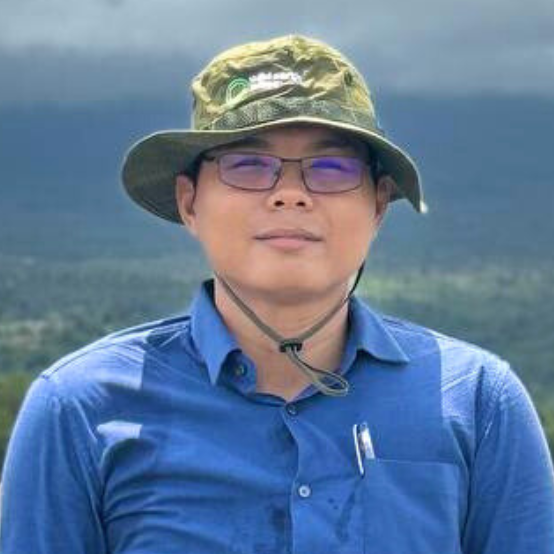In the Democratic Republic of the Congo (DRC), Kahuzi-Biega National Park and its surrounding areas hold a wealth of natural resources. Despite this natural wealth, many residents near the park live in extreme poverty, with few opportunities to improve their standard of living.
Together with our partner Primate Expertise, we reach 13 park-adjacent Batwa and Bantu villages with vital livelihood support. Program participants and their families enjoy improved food security, incomes, health, and increased local access to natural resources. This, in turn, reduces pressures on Grauer’s gorillas, other wildlife, and their habitats.
Examples of livelihood initiatives underway include reforestation with seedlings sourced from nurseries managed by the Ape Trees™ conservancy program inside and outside the park, medicinal community gardens, fruit tree cultivation, bamboo nurseries, eco-friendly artisanal goods, agriculture, and small livestock husbandry.
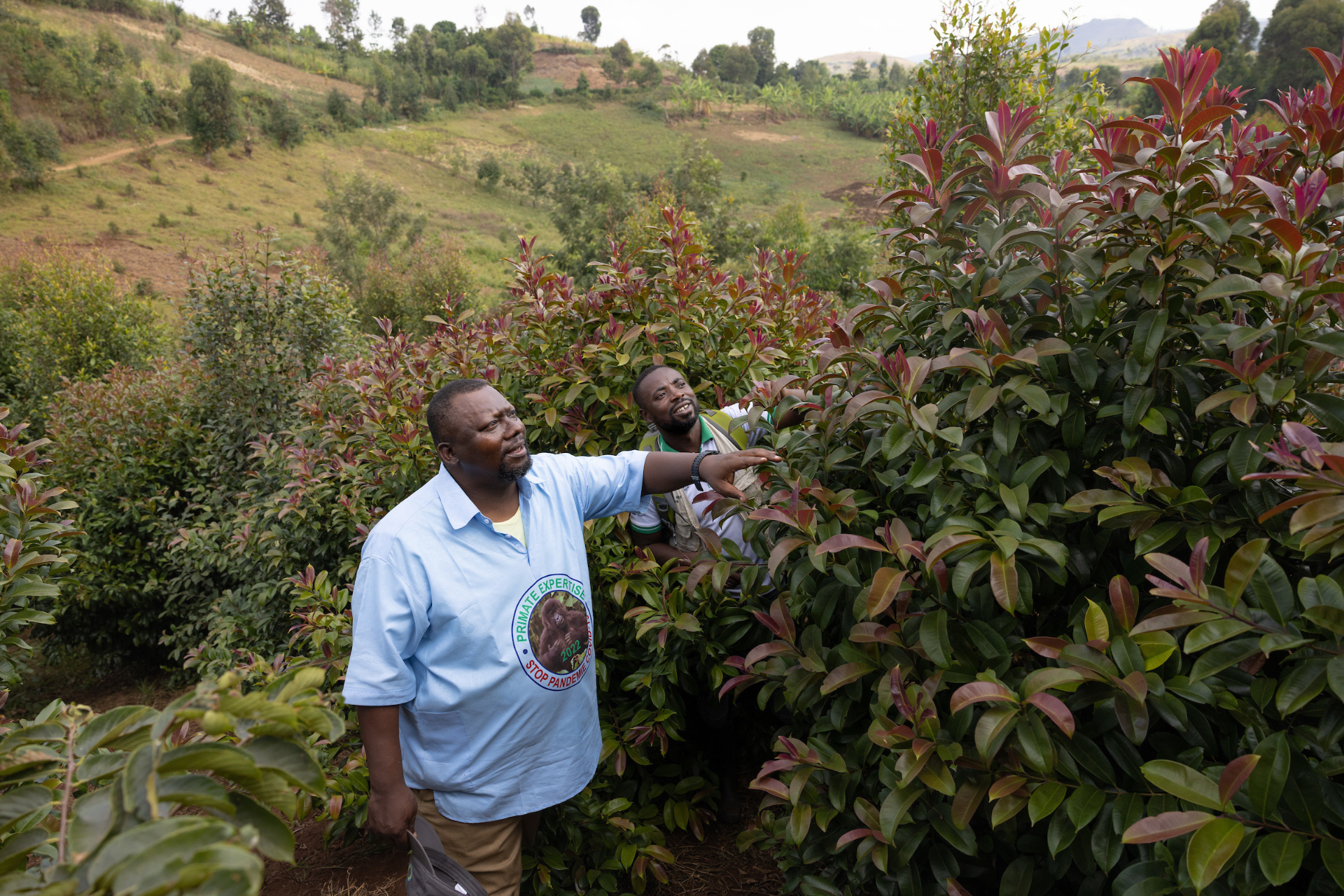
Primate Expertise Founder and Executive Director, Dr. Augustin K. Basabose, and Reforestation Coordinator, Salomon Bazibuhe, visit a reforestation site supported by the Ape Trees project. (Photo by Allison Shelley)
Establishing Tree Nurseries and Medicinal Gardens
Dr. Augustin K. Basabose, Primate Expertise Founder and Executive Director, discovered that planting seeds collected from ape dung is an effective way to restore degraded forest habitats. Dr. Basabose leveraged this unique reforestation method to spearhead the Ape Trees™ conservancy initiative. Part of the Ape Trees™ effort includes establishing community nurseries to provide food, medicine, and fuelwood for local use and reduce the need to gather resources in the park. Trees grown from the collected seeds also provide food and habitat for critically endangered Grauer’s gorillas. The Primate Expertise team has grown over 51,800 native trees and reforested over 560 acres of degraded lands.
Community members near Kahuzi-Biega also manage and benefit from medicinal gardens, increasing local access to important natural resources. A survey conducted by Primate Expertise showed that communities using the gardens treat 46 illnesses with eight tree species whose fruit is eaten by great apes.
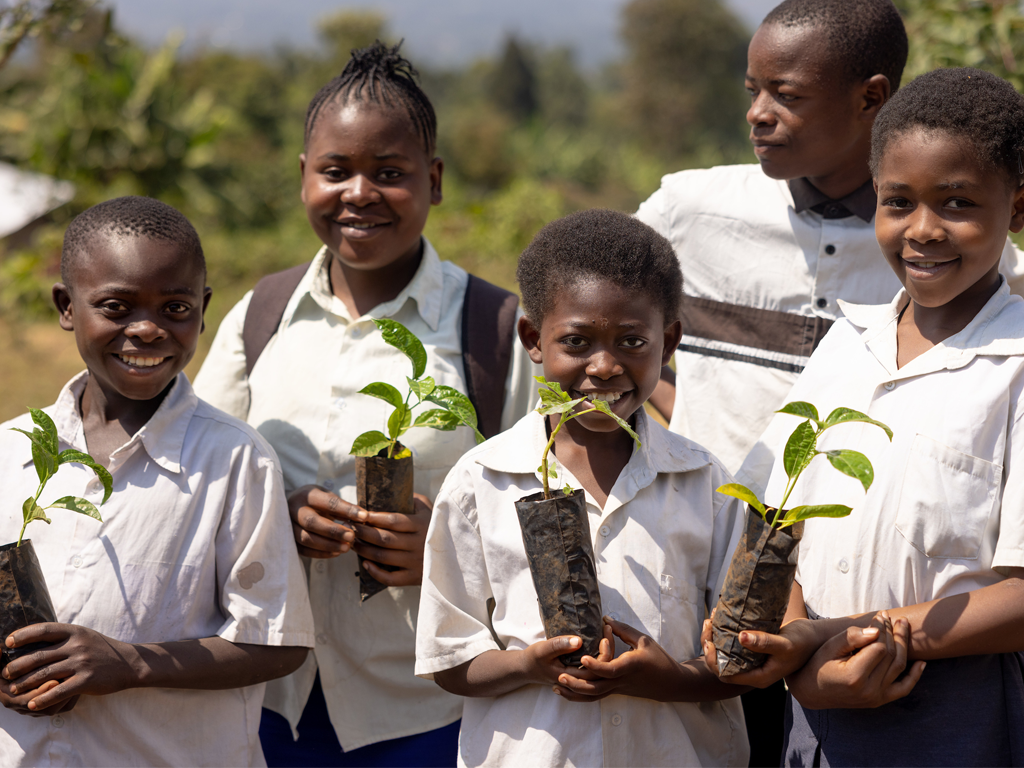
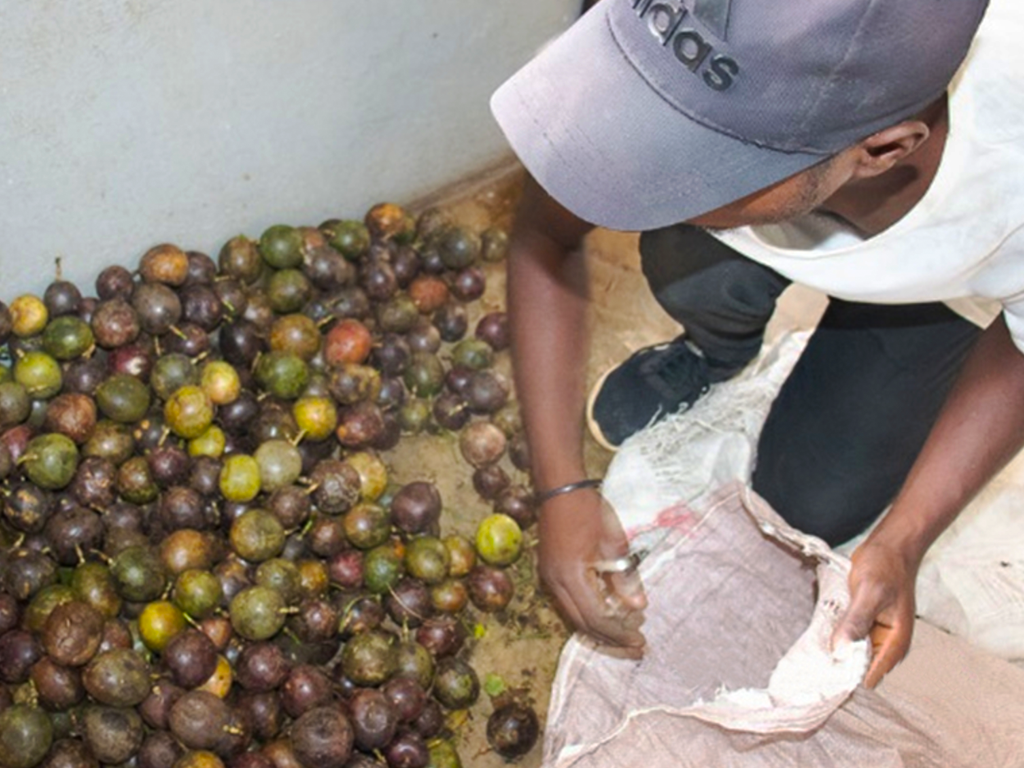
Schoolchildren receive passionfruit seedlings from Primate Expertise; A man collects fruit from his passionfruit trees (Photos by Allison Shelley and Primate Expertise)
Fruit Tree Cultivation
In the DRC, fruits such as papaya, passionfruit, and mandarin are important food sources for people. Our fruit production project provides food security and livelihoods in 11 villages near the park. To date, 523 households have received 17,443 fruit trees. One fruit tree recipient reported that his passionfruit has already yielded $107 (USD) in sales—a significant amount of household income. In 2023, another 30 families joined the program to plant passionfruit trees on their land.
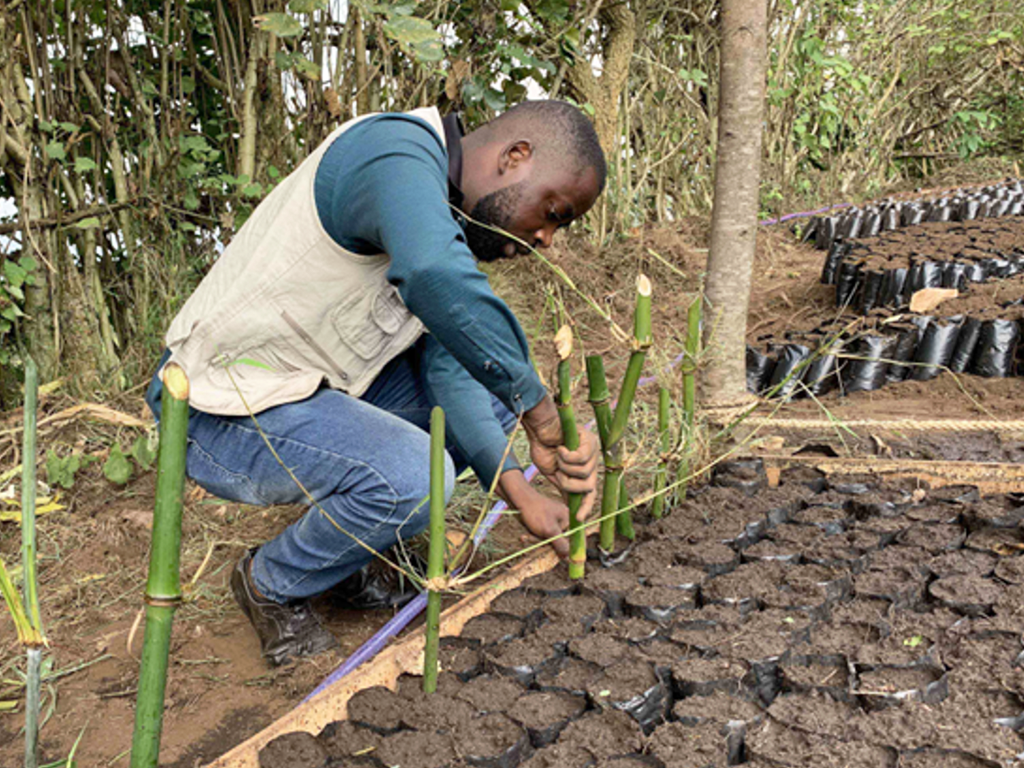
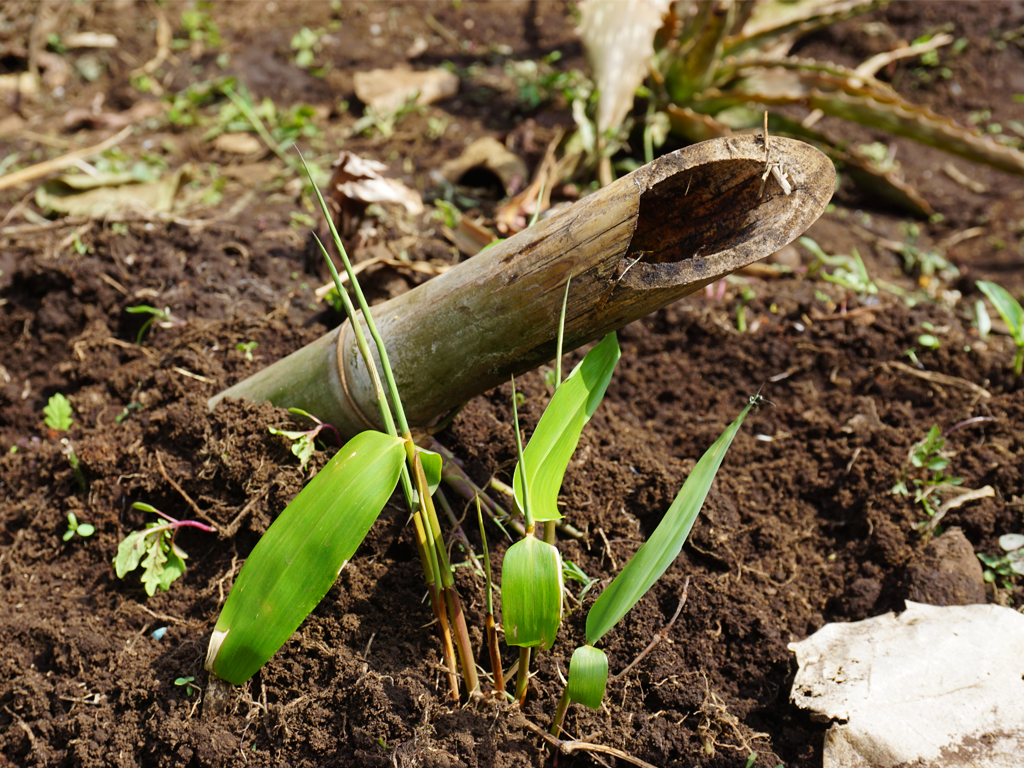
Primate Expertise Reforestation Coordinator, Salomon Bazibuhe, cultivates bamboo; A bamboo cutting at the nursery (Photos by Primate Expertise and Kelly Hogan)
Bamboo Nurseries
Native bamboo is a valued resource in communities near Kahuzi-Biega. Community members use native bamboo to build homes, market stalls, fences, and other structures. In 2023, Primate Expertise created a nursery to increase local bamboo production and reduce pressures on bamboo forests in the park. Two nursery workers are currently exploring the most efficient methods to grow bamboo. We have planted 880 bamboo cuttings and plan to grow 5,000 bamboo plants at the nursery.
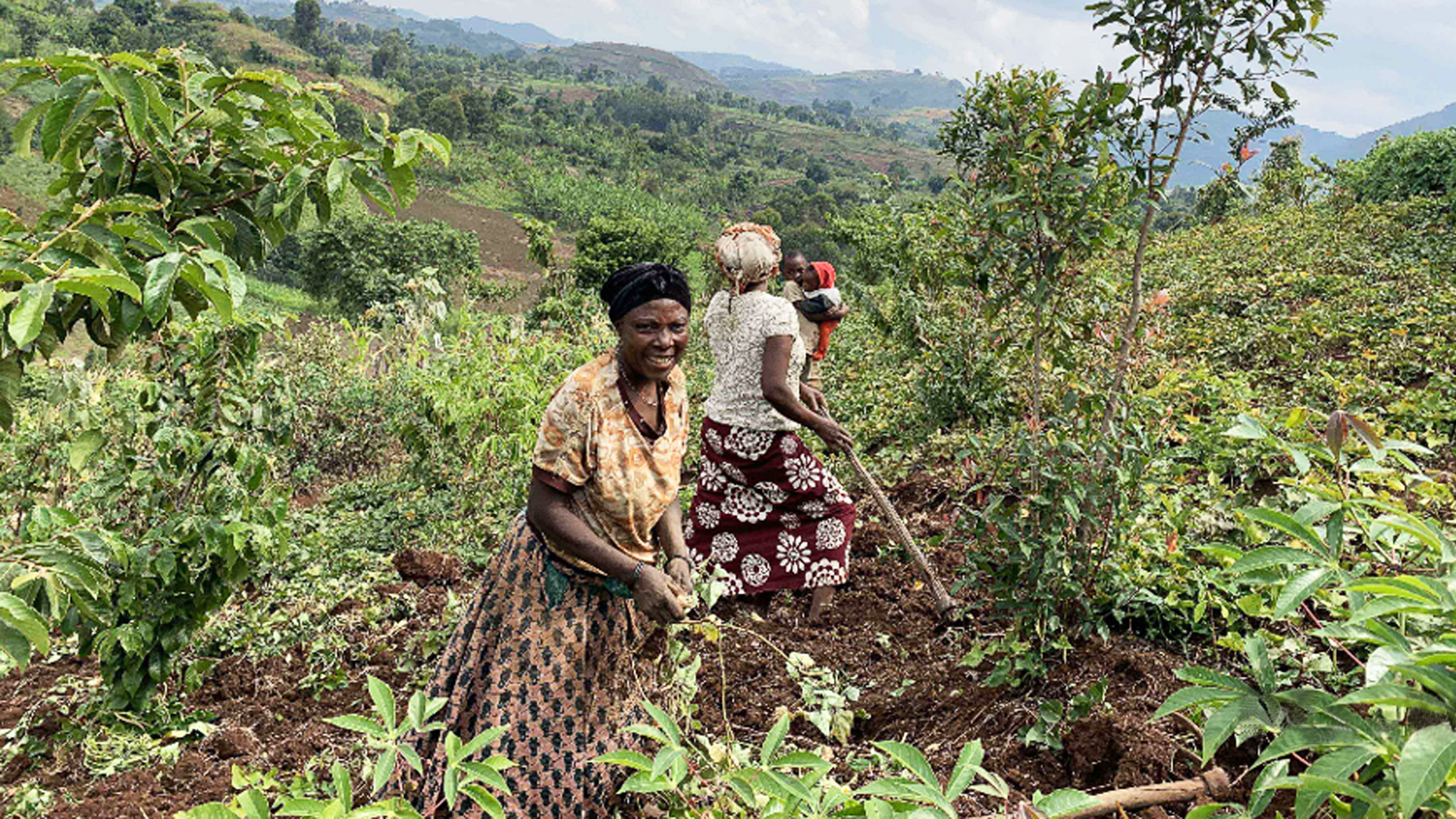
An experimental Ape Trees reforestation site with agroforestry (Photo by Primate Expertise)
Agriculture and Small Livestock Husbandry
In the areas around Kahuzi-Biega National Park, poverty often goes hand in hand with food insecurity. We reach hundreds of families across 13 villages to create household gardens and cultivate community lands with essential crops like maize, beans, and soybeans. Primate Expertise is also piloting permaculture and agroforestry techniques to improve the sustainability of agriculture.
Small livestock programming improves access to protein for families across 10 villages. This also reduces snaring inside the park, as many in these communities once relied on hunting small mammals for food.
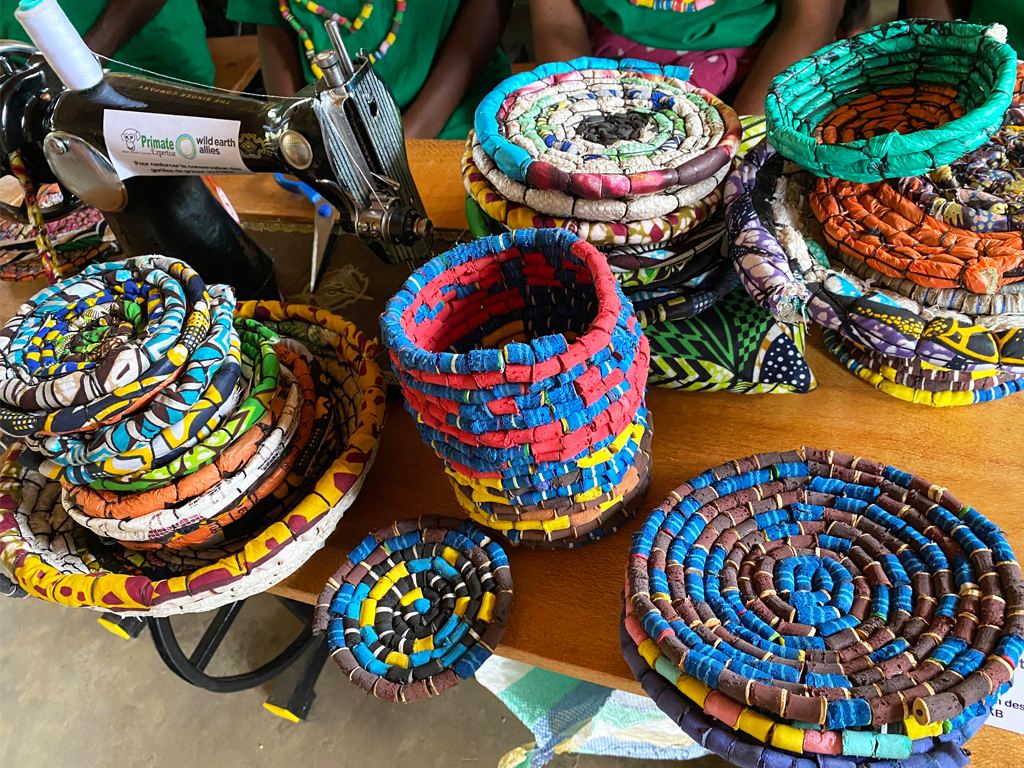
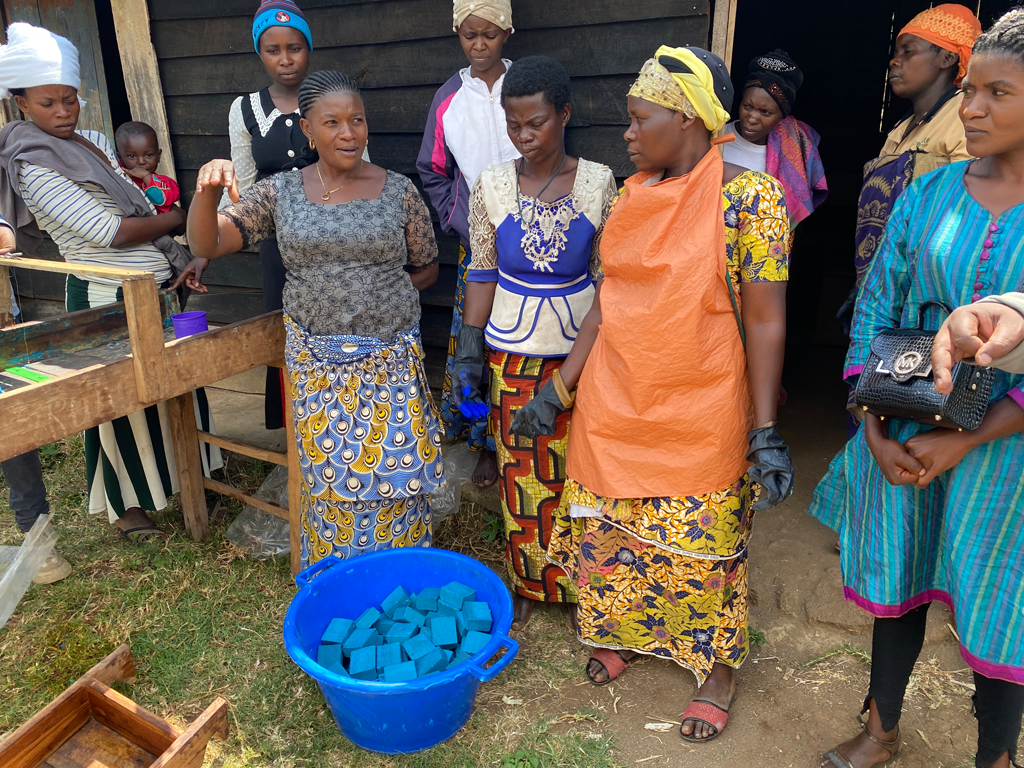
Artisanal goods made using the Plastycor method; Indigenous Batwa women display bars of handmade soap. (Photos by Kelly Hogan)
Women-Made Artisanal Goods
Together with Primate Expertise, we are working with a Congolese organization called Plastycor to train Indigenous Batwa women’s groups in creating eco-friendly artisanal goods. Plastycor recycles plastic waste and textiles to create baskets, flowerpots, and other useful items. The women’s groups are making and selling their products at markets in the nearby city of Bukavu.
We are also supporting 245 Indigenous Batwa women to learn the craft of soapmaking. Demand for soap in Bukavu is high, allowing the women to earn around $1 (USD) per soap bar. Additionally, we are providing literacy courses for 106 Indigenous Batwa women so they can improve their livelihood prospects.
Please join us to support conservation that benefits wildlife, habitats, and people by making a gift today.


